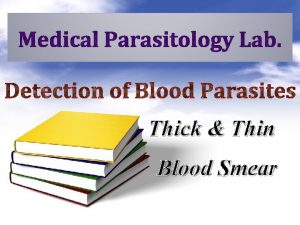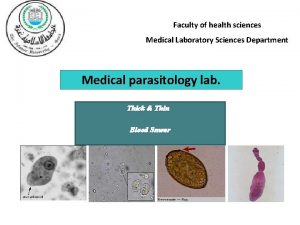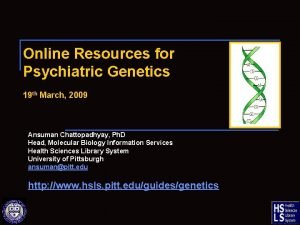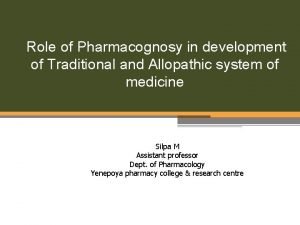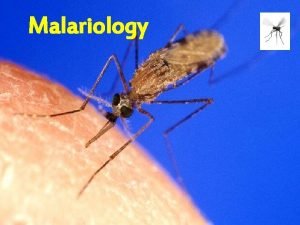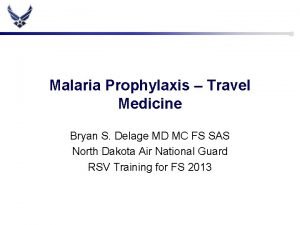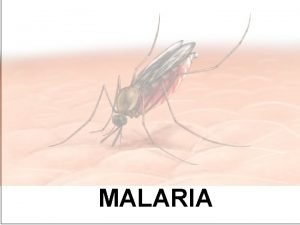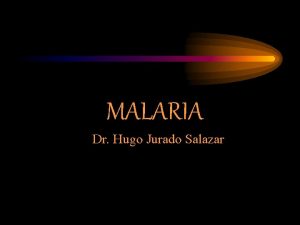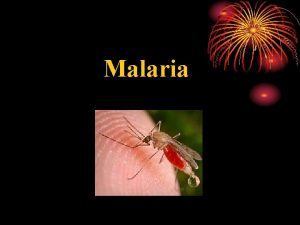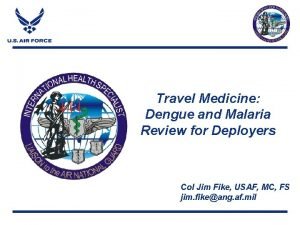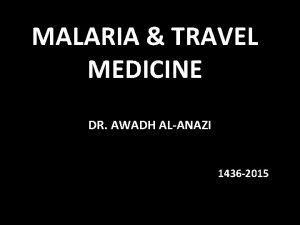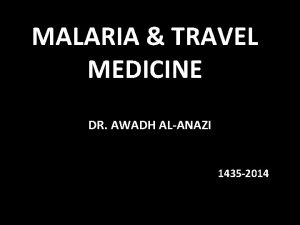Malaria and VFRs The role of travel medicine
















- Slides: 16

Malaria and VFRs The role of travel medicine Dr Jane N Zuckerman WHO Collaborating Centre for Reference, Research & Training in Travel Medicine Academic Centre for Travel Medicine & Vaccines Royal Free Travel Health Centre University College Medical School


UK Travellers 2012 • The number of visits abroad by UK residents fell by 0. 5% in 2012, from 56. 8 million in 2011 to 56. 5 million. • There is no clear evidence that the fall is driven by people living in any particular part of the UK. • Holiday visits, which account for nearly two thirds of visits abroad, fell by 1. 8% while both business visits and visits to friends or relatives grew. Source: International Passenger Survey (IPS) - Office for National Statistics

UK residents' visits abroad by purpose 1992 -2012 Visits (thousands) 1992 1993 1994 1995 1996 1997 1998 1999 2000 2001 2002 2003 2004 2005 2006 2007 2008 2009 2010 2011 2012 Holiday Business 23, 236 5, 162 25, 133 5, 297 27, 187 5, 614 27, 808 6, 113 26, 765 6, 879 29, 138 7, 166 32, 306 8, 033 35, 023 8, 161 36, 685 8, 872 38, 670 8, 220 39, 902 8, 073 41, 197 7, 892 42, 912 8, 140 44, 175 8, 556 45, 287 9, 102 45, 437 9, 018 45, 531 8, 920 38, 492 6, 887 36, 422 6, 639 36, 819 6, 846 36, 173 6, 956 Visit Friends or Relatives Miscellaneous 4, 100 1, 338 4, 457 1, 833 4, 674 2, 155 4, 938 2, 486 5, 502 2, 904 6, 004 3, 649 6, 452 4, 082 6, 598 4, 100 7, 178 4, 102 7, 727 3, 664 7, 870 3, 532 8, 527 3, 807 9, 799 3, 343 10, 648 3, 063 11, 963 3, 184 12, 214 2, 781 12, 392 2, 168 11, 592 1, 643 10, 850 1, 652 11, 594 1, 576 11, 797 1, 612

UK residents visits abroad by purpose 1992 to 2012 Source: International Passenger Survey (IPS) - Office for National Statistics

Public Health England Malaria Report 2013 • There were 1, 378 cases of malaria reported in ill returned travellers to the UK in 2012, including two deaths. • This is a decrease from the 1, 677 cases reported in 2011. • As in previous years, the majority (73%) were caused by the potentially life-threatening Plasmodium falciparum and were acquired in Africa. • This high proportion of Plasmodium falciparum reflects the fact that most malaria imported into the UK is acquired in Africa. • Where region of travel was specified; 49% (669/1, 378) of P. falciparum cases originated from West Africa. • Among UK malaria cases, where reason for travel was known, over 70% were visiting friends and relatives and the majority of these travellers had not taken malaria prophylaxis.

Malaria Report 2013 • Probably reflects greater travel to malaria-endemic areas. • This high proportion of falciparum malaria reflects the fact that most malaria imported to the UK is acquired in West Africa. • The group who continue to be at highest risk of contracting malaria are those visiting friends and relatives. • This group are more likely to acquire malaria for a number of reasons, including: • not seeking or being unable to access appropriate medical advice before travel, • receiving poor advice, • not adhering to advice, or • not perceiving themselves to be at risk because the destination is familiar to them.


Imported malaria cases and deaths United Kingdom: 1993 - 2012 Year *P. falciparum P. vivax. P. ovale. P. malariae Mixed P unspecified Total 2012 1002 271 66 32 7 1378 2011 1149 416 77 31 4 1677 2010 1263 350 99 37 12 1761 2009 1179 205 69 36 6 1495 2008 1087 177 76 20 9 1 1370 2007 1139 256 108 30 15 1548 2006 1386 219 106 26 20 1758 2005 1338 258 116 29 10 3 1754 2004 1221 278 121 28 12 1660 2003 1339 206 134 27 15 1 1722 2002 1469 284 134 43 13 2 1945 2001 1576 263 157 37 16 1 2050 2000 1576 322 124 30 16 1 2069 1999 1504 374 113 41 11 2 2045 1998 1388 484 157 26 17 1 2073 1997 1401 790 125 27 20 1 2364 1996 1283 1014 134 35 33 1 2500 1995 1112 742 143 29 29 2055 1994 1178 501 125 44 39 1887 1993 1048 708 116 20 30 1922 Deaths 2 8 7 6 6 5 8 11 5 16 9 9 16 14 7 13 11 4 11 5

Imported malaria cases by species and region of travel, United Kingdom: 2012 Geographic *P. falciparum P. vivax area West Africa 669 1 East Africa 112 11 Central 43 1 Africa Southern 45 2 Africa North Africa - 18 1 unspecified Asia§ 7 213 Far East/SE 4 Asia Central/South 3 America Middle East 1 Oceania 4 Not given 107 31 Total 1002 271 P. ovale P. malariae Mixed 44 7 16 8 4 2 P unspecified - 7 1 - - 52 3 2 - - 52 - - - 1 1 - - 21 - - - - 220 - - - - 4 - - - - 3 4 66 4 32 1 7 - 1 4 147 1378 Total 734 140

Imported malaria cases by reason for travel, United Kingdom: 2011 Population group *P. falciparum P. vivax P. ovale P. malariae Mixed P unspecified Visiting family in 452 124 24 6 4 country of origin Holiday travel 47 11 6 4 Foreign visitor ill while 72 35 3 1 in UK New entrant 36 60 3 Business/professional 66 7 6 5 travel UK citizen living 27 1 abroad Foreign student 28 40 6 1 studying in the UK Civilian sea/air crew British armed services 1 Children visiting 2 parents living abroad Other Not stated 419 138 28 14 Total 1149 416 77 31 4 - Total 610 68 111 99 84 28 75 1 2 599 1677

Some Evidence • Where the history of taking anti-malarial medication was obtained, 84 %of cases had not taken prophylaxis. • Of those who had malaria diagnosed in the UK, where ethnicity was known, 136 were reported as white British, compared with 938 who were reported as African or of African descent and 395 reported as Asian or of Asian descent. • The burden of falciparum malaria in particular falls heavily on those of African ethnicity, and this group is important to target in pre-travel advice. • Some groups are at particular risk of acquiring malaria and are not being reached by health messages about the importance of anti-malarial prophylaxis. HPA Malaria Report 2012

Malaria and UK Travellers • Under-reporting of malaria cases in the UK is known. • A capture-recapture study estimated that the surveillance system captured 56% of cases. • Ethnic minority travellers visiting friends and relatives are at particular risk of acquiring malaria • Once acquired the risk for mortality is significantly higher in holiday travellers. • There is a strong association between increasing age and mortality. • Therefore elderly travellers should be considered a particular risk group.

VFRs & Travel Health • More migrant families travel to countries of their ethnic origin, where malaria is endemic, contributing to the increasing incidence of imported malaria • Failure to comply with prophylaxis or to seek travel health advice mostly explains the increased risk of exposure and cases of malaria in travellers, particularly those visiting friends and relatives. • Historically, the problem for travel health practitioners recommending malaria prophylaxis for travel to Africa and Asia has been the adverse publicity regarding this treatment. • In addition, many people visiting friends and relatives underestimate their risk of exposure to travel related illness, especially malaria, despite not having lived in an endemic area for many years. • This is a dangerous presumption. • Other reasons for the reported increase include inaccessibility of travel health advice, over the counter purchase of inappropriate prophylaxis, and purchase of inexpensive (and sometimes counterfeit prophylaxis) at the destination.

UK Travel Patterns • With travel predicted to grow to nearly 1. 6 billion international arrivals by 2020, travellers will be at increased risk of exposure. • The increase in cases of imported malaria is not unexpected. It reflects the increase in the number of visits abroad together with a 150% increase in UK residents travelling to malaria endemic areas during the past decade. • One notable change is that with improved vector control in Asia, most cases are now acquired in Africa. • As severe acute respiratory syndrome showed, 21 st century threats to global public health and travel are inextricably interlinked, and they present ready opportunities for the rapid spread of infectious disease • Although people visiting friends and relatives are at particular risk & form the largest group returning with malaria, business and holiday travel also account for a percentage of cases.

What Can We Do? • A significant decrease in imported cases of P vivax reported after travel to the Indian subcontinent, a result of successful vector eradication in many urban areas. • Pursuing a similar policy and achieving the millennium goals in Africa may reduce the incidence of malaria in endemic areas and improve the health of populations, while also reducing the risk of malaria to travellers, all of which may negate the necessity for prophylaxis in the future. • What else can we do? Healthcare practitioners involved in advising travellers about preventing malaria should follow the clear and concise guidelines on malaria prevention for UK travellers. • Studies of people visiting friends and relatives aimed at identifying the pertinent factors such as cultural beliefs, knowledge, and attitude towards malaria prevention would help understand how best to impart health education through targeted communication and the use of innovative techniques.
 Azure web role vs worker role
Azure web role vs worker role Thin and thick smear
Thin and thick smear University of pecs faculty of health sciences
University of pecs faculty of health sciences Stp disease
Stp disease Malaria and dengue
Malaria and dengue Madar kabab chini tagar are the example of
Madar kabab chini tagar are the example of Krappmann role taking
Krappmann role taking Role conflict occurs when fulfilling the role expectations
Role conflict occurs when fulfilling the role expectations Enlargement of a lymphoid organ in the luq
Enlargement of a lymphoid organ in the luq What is hyposplenism
What is hyposplenism Schuffner dots malaria
Schuffner dots malaria Site:slidetodoc.com
Site:slidetodoc.com Obat malaria dhp
Obat malaria dhp Malaria means bad air
Malaria means bad air Malaria prophylaxis
Malaria prophylaxis Cause of splenomegaly in malaria
Cause of splenomegaly in malaria Piremetamina
Piremetamina

